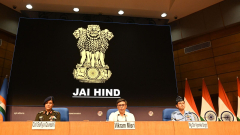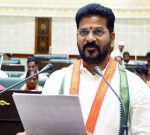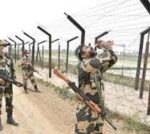From Phalagam to Operation Sindoor: On 22 April, my keyboard clacked with urgency as I endeavoured to report the tragic demise of 26 people in the resplendent Baisaran Valley of Pahalgam. The clatter of the keys became my constant companion, as the already fragile diplomatic ties between India and Pakistan, which had been teetering since 1947, plummeted into an ever-deepening abyss over the course of the following fifteen days, culminating in the execution of Operation Sindoor.
As dawn broke on 7 May, India responded with a measured sense of closure. The country witnessed a surge of public support for the government, following the announcement of Operation Sindoor. Families of the victims of the Pahalgam terror attack expressed cautious relief, while officials framed the operation as a decisive response after fifteen days of heightened tensions and diplomatic strain.
Let us review the key events that unfolded over the fifteen days between the Pahalgam terror attack and Operation Sindoor.
22 April 2025:
A brutal terror attack struck the Baisaran Valley in Pahalgam, Jammu and Kashmir, where five militants targeted a group of tourists.
Twenty-six civilians, mostly Indian tourists, were mercilessly killed after being asked to recite Islamic verses and shot when they failed to comply.
This was the deadliest attack on civilians in India since 2008, sparking nationwide outrage and condemnation.
Prime Minister Narendra Modi immediately cut short his visit to Saudi Arabia and returned to India to oversee the government’s response.
23 April 2025:
India’s Cabinet Committee on Security (CCS) convened an emergency meeting chaired by Prime Minister Modi.
The committee resolved to take strong diplomatic and security measures, including suspending the Indus Waters Treaty with Pakistan.
India also closed the Attari Integrated Check Post (ICP), a crucial land border crossing, and revoked the SAARC Visa Exemption Scheme for Pakistani nationals. All existing visas issued to Pakistani citizens were cancelled, and Pakistani military advisers in New Delhi were declared persona non grata.
India withdrew its own defence advisors from Islamabad and announced plans to reduce the staff strength of its High Commission in Pakistan.
24 April 2025:
Pakistan retaliated by suspending visas for Indian nationals, closing its airspace to Indian aircraft, expelling Indian diplomats, and ordering Indian military advisers to leave by 30 April.
It put on hold the Simla Agreement and halted all trade with India.
The ceremonial handshake at the Attari–Wagah border was cancelled, and cross-border families faced visa revocations.
Pakistan denied involvement in the Pahalgam attack, while its Defence Minister controversially acknowledged past support for militant groups under Western influence.
26 April 2025:
India intensified visa restrictions by revoking 14 categories of visas issued to Pakistani nationals, including business, journalist, student, and pilgrim visas. Only diplomatic and official visas remained valid.
Pakistani nationals overstaying beyond expiry faced legal action under Indian immigration laws.
30 April 2025:
India officially closed its airspace to all Pakistani-registered and operated aircraft, including commercial and military flights, effective until 23 May 2025.
The reciprocal bans forced Pakistani airlines to reroute flights through longer paths via China or Sri Lanka, increasing operational costs and flight durations.
1 May 2025:
The Attari-Wagah border crossing was fully shut, halting all cross-border movement and trade.
Pakistani nationals





